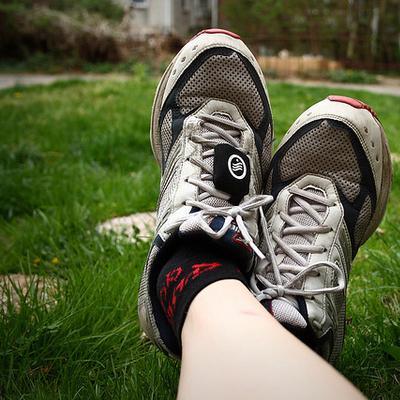Advertisement
Workouts Pointless For Some? No, And Five Reasons Why Not

At first, it seems like the ultimate excuse to skip your workout. The "Well" blog of The New York Times ran a column yesterday about Finnish research suggesting that some people, "outliers" on the statistical graphs, do not get measurably fitter when they run or stronger when they lift weights.
Could it really be true? Should some of us just give up? I called Dr. Eddie M. Phillips, head of the Institute of Lifestyle Medicine at Spaulding Rehabilitation Hospital, and asked him to say it ain't so. He kindly obliged with five persuasive reasons, distilled below:
1. The benefits of exercise go far, far beyond the endpoints that the study measured in its subjects. "What was their stress level? How much better did they sleep? What was their mood, their concentration, their appetite? It just goes on and on." In his own practice, Dr. Phillips tends to hear from patients that what they care about is function. They tell him how much exercise has improved their ability to, say, get out of a low chair or walk their dog as far as he wants to go.
2. Researchers already knew that a "scatter chart" of subjects' oxygen capacity during an exercise regime will include "outliers," people who improve much more or less than others. The Finnish study merely highlights those outliers, but the great majority of people fall within the bell curve and do get fitter or stronger from exercise.

3. As one New York Times commenter suggested, Dr. Phillips said, "We’d have to look at exactly how intense the exercise was, because low level exercise is better than none for the population as a whole, but moderate is better, and if you’re talking about weight lifting and really want to see strength-training, you really have to push people. That’s a methodological issue."
4. Yes, genetics may influence a person's response to exercise, but behavior clearly matters. Human genes have not changed enough in the last 30 years to explain the obesity epidemic. "There’s a principle called SAID — specific adaptation to an imposed demand - which means that if I give you weights at any age, and increase the weights, your muscles WILL respond. I could quote the articles where they did this on 90 and 100-year -olds, and their muscles repond. So that seems to be an inexorable truth. And you can see the opposite by just looking at your friends — If you don't use it, you lose it."
5. People look for excuses not to exercise. But the correct response to this study in practice is that the subjects who did not respond may need a different regimen or a different type of exercise. "I would change something in the exercise prescription," Dr. Phillips said. "I’d either change the intensity, the time, or the type of exercise they're doing to see if they get a better response." In general, he said, what he hears from patients is the exact opposite of the non-responders in the study: "I didn’t believe you when you told me that core strengthening would make me a better runner, but i just got a personal best on my last 5K, on the turkey trot."
